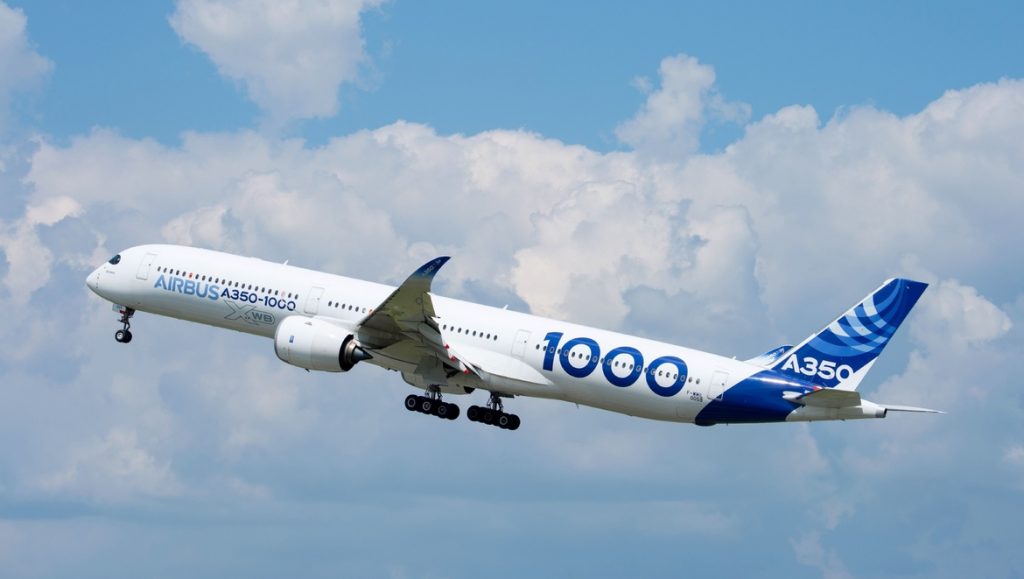
Airbus has confirmed that it will officially develop and produce a long-awaited freighter version of its A350, as it attempts to steal back some share of the Boeing-dominated cargo market.
The European planemaker announced its intentions to produce the freighter amid the release of its second-quarter results, which saw Airbus bring in revenue of €24.6 billion.
Currently, the A350 freighter is slated to enter service in 2025, and no potential customers have been named by Airbus as of yet.
The planemaker has failed to sell a freighter since 2015, however, a strongly-requested cargo variant of its popular widebody A350 could see it spark new competition in the Boeing-dominated freighter market.
“We believe we have a very promising aircraft,” chief executive Guillaume Faury said.
“Following board approval, we are enhancing our product line with an A350 freighter derivative, responding to customer feedback for increased competition and efficiency in this market segment.”
The decision to launch the A350 freighter likely came off the back of growing speculation that Boeing will soon launch its own new freighter variant of its upcoming 777X.
The market will then see tough competition, with industry sources say Airbus’s variant would carry 109 tonnes compared with the predicted 115–117-tonne capacity of Boeing’s jet.
However, the 777X passenger variant has run into various issues that has seen the US Federal Aviation Administration (FAA) warn it will likely not receive its certification until late 2023.
The regulator outlined the jet was not ready to receive its crucial Type Inspection Authorization (TIA) Readiness clearance, due to a lack of data and a preliminary safety assessment.
The jet was originally planned to enter service last summer after being announced in 2013 at the Dubai Airshow.
Despite issues, CEO of Boeing David Calhoun said in June during an investor conference he has “lots of confidence in it”.
Boeing is forecasted to argue the 777X will integrate into existing infrastructure, and deliveries for current freighters resulting in 40 per cent lower emissions could receive exemptions.
The International Air Transport Association (IATA) reported on Wednesday air cargo volume increased 9.9 per cent in June, the highest half-yearly amount since 2017.
As the post-pandemic recovery continues, analyst Robert Spingarn from Credit Suisse said jets such as the 777X will gain momentum in a few years as the international market returns to normal.
While customers were not announced, Qatar, the Doha-based carrier, has long pressured both planemakers to produce a new wide-body long-range freighter.
Earlier in this month, Qatar’s CEO Akbar Al Baker flagged he would be ready to place a “large custom order” by the end of the quarter, but has signalled his interest in both companies.
Al Baker said he would be interested in the 777X and A350F, as long as Airbus resolved its manufacturing issues.
Airbus was close to offering a freighter version of its wide-body A380 in the past, however the four-engine commercial jet is now slowly becoming obsolete.
The variant would have carried over 150 tonnes of cargo, making it the largest freighter on the market, but the potential aircraft has remained no more than a rumour.




